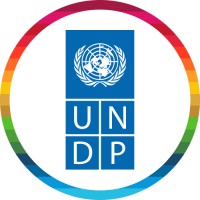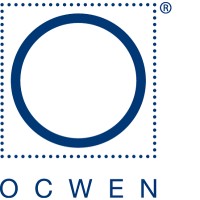Background
The Philippines, one of Southeast Asia's fastest-growing economies, faces the growing threat of environmental degradation and frequent climatic events, which could disrupt political, economic, and security stability. Humanitarian crises could further exacerbate poverty, reverse development gains, and cause long-term instability.
To address this, the United Nations Development Program (UNDP), with support from the Australian Government's Department of Foreign Affairs and Trade (DFAT), is implementing the Strengthening Institutions and Empowering Localities Against Disasters and Climate Change (SHIELD) Program. With an AUD 18 million investment, SHIELD aims to enhance the resilience of communities in target areas against natural hazards and climate change through three key components:
- Component 1: Government, private sector, and civil society stakeholders in targeted local government units (LGUs) are collaborating to unlock funding and implementing informed and inclusive resilience actions
- Component 2: Relevant national government agencies (NGAs) are prioritizing action on local climate and disaster resilience
- Component 3: Philippine scientific agencies are producing tailored and accessible information for local resilience action
SHIELD is implemented in partnership with the Philippine government through the Department of Interior and Local Government (DILG) and four consortium partners: UN-HABITAT, Philippine Business for Social Progress (PBSP), National Resilience Council (NRC), and the Consortium of Bangsamoro Civil Society (CBCS). The program targets 10 vulnerable provinces, Metro Manila, and the Bangsamoro Autonomous Region in Muslim Mindanao (BARMM).
A SHIELD Support Unit (SSU) has been set up to manage the program’s operations, supporting the SHIELD Program Board, Executive Committee, Program Management Team, and multi-stakeholder partners at national and sub-national levels.
Duties and Responsibilities
Within the delegated authority and under the supervision of the Component 1 Lead for LGU Resilience Resource and Implementation, the Provincial Associate will perform a variety of technical and administrative support functions contributing to the design, planning, implementation, management, and monitoring of activities of SHIELD activities in the Provincial Government.
1.Support the implementation and results-based monitoring of SHIELD’s provincial field activities
- Support implementation of SHIELD activities in the field in line with the Annual Work Plan (AWP) of the provincial government and propose improvements through reviewed work plans;
- Assist target local governments in understanding and aligning with SHIELD’s objectives and effectively support them in the management, implementation, and monitoring of activities/interventions/investments;
- Develop and implement a structured tracking system to monitor progress against programme targets and indicators, providing real-time data on achievements and challenges
- Prepare and submit overall program progress reports (quarterly, semi-annual, and annual project progress reports) and contribute to the annual performance assessment; and,
- Provide recommendations for the mitigation of identified risks, sustainability strategies, and improvements in project implementation based on findings of monitoring missions.
2. Provide programme support to subnational government counterparts and key stakeholders
- Provide provincial project coordination, planning, and implementation of the programme activities;
- Uphold and maintain a conducive and regular working relationship with the provinicial government, consortium partners, local partners, and other stakeholders that allow effective and efficient delivery of program outcomes and outputs;
- Organize and document meetings, consultations, missions, capacity building activities and other related activities to support programme objectives;
- Coordinate and facilitate discussions with partners and stakeholders on issues affecting the programme, and bring the same to the attention of the SHIELD team; and,
- Attend any forums where project stakeholders might highlight issues that could affect the programme or add to the scope of the program, and bring the same to the attention of the programme team.
3.Administrative support to the implementation of project activities
- Coordinate logistics for field visits, missions, conferences and other SHIELD-related events, ensuring seamless execution.
- Support the provincial government to collect and compile expenditure reports and other related financial documents, as required; and,
- Arrange meetings and draft routine correspondence, minutes including preparing background materials for discussions and briefing sessions.
4. Support effective mainstreaming of gender equality and community participation
- Support the provincial government in ensuring GEDSI principles are applied in all aspects of project implementation and the participation of communities throughout the project implementation; and,
- Collect, analyze, and present information to support program planning, strategy development, and implementation.
5. Support facilitating knowledge sharing and communication
- Support and facilitate consultation and exchange of information, synergies, learning and know-how at the local level;
- Document local best practices that may be featured in the programme’s learning exchange activities;
- Support the knowledge and communication efforts of SHIELD (i.e. stories, news articles, photos, videos, social media presence, as appropriate) with support and guidance from SHIELD knowledge and communications analyst; and
The incumbent performs other duties within their functional profile as deemed necessary for the efficient functioning of the Office and the Organization.
Institutional Arrangement
The Provincial Associate shall be directly supervised by the Component 1 Lead for LGU Resilience Resource and Implementation, with overall guidance from the Programme Manager. He/She will be working closely with the SHIELD SSU and SHIELD Project Management UnitUNDP Country Office and Bangkok Regional Hub, Consortium Partners, national and subnational partners and stakeholders, and DFAT.
In carrying out his/her work, the Provincial Associate shall work in close coordination with the SHIELD Focal Point at the Provincial Government.
Competencies
CORE:
Achieve Results
LEVEL 1: Plans and monitors own work, pays attention to details, delivers quality work by deadline
Think Innovatively:
LEVEL 1: Open to creative ideas/known risks, is pragmatic problem solver, makes improvements
Learn Continuously:
LEVEL 1: Open minded and curious, shares knowledge, learns from mistakes, asks for feedback
Adapt with Agility
LEVEL 1: Adapts to change, constructively handles ambiguity/uncertainty, is flexible
Act with Determination:
LEVEL 1: Shows drive and motivation, able to deliver calmly in face of adversity, confident
Engage and Partner:
LEVEL 1: Demonstrates compassion/understanding towards others, forms positive relationships
Enable Diversity and Inclusion:
LEVEL 1: Appreciate/respect differences, aware of unconscious bias, confront discrimination
CROSS FUNCTIONAL & TECHNICAL COMPETENCIES:
Business Development: Knowlegde Facilitation
Ability to animate individuals and groups, internally and externally, and to design and facilitate activities, to share and exchange knowledge, information and ideas. Knowledge of tools and approaches to stimulate active participation, contribution, and exchange.
Business Development: Collective Intelligence Design
Ability to bring together diverse groups of people, data, information, ideas, and technology to solve problems and design solutions or services. Knowledge and understanding of Collective Intelligence Design principles, methodology and practices.
Business Management: Communication
Communicate in a clear, concise and unambiguous manner both through written and verbal communication; to tailor messages and choose communication methods depending on the audience. Ability to manage communications internally and externally, through media, social media and other appropriate channels.
Business Management: Digital Awareness and Literacy
Ability to monitor new and emerging technologies, as well as understand their usage, potential, limitations, impact, and added value. Ability to rapidly and readily adopt and use new technologies in professional activities, and to empower others to use them as needed. Knowledge of the usage of digital technologies and emerging trends.
Business Management: Working with Evidence and Data
Ability to inspect, cleanse, transform and model data with the goal of discovering useful information, informing conclusions and supporting decision-making
Digital: Creative Facilitation
Ability to design workshops that considers and addresses multiple interests, agendas, worldviews; set out clear objectives and engaging activities; select appropriate tools, materials, resources that are needed to enable or support the activities.
Ability to swiftly build rapport with participants and create a safe space (on- and offline) where they feel comfortable to share their views, concerns, experiences and reflections; supporting this with a range of tools to stimulate active participation.
Ability to facilitate inclusive conversations, ability to work with a diverse set of people with different backgrounds, seniority and expert levels, using different approaches tailored to fit the people in the room, drawing out the perspectives and ideas of each individual and making decisions through deliberation and discussion across a group.
Ability to pace a session, adjust to the abilities and energy levels of attendees and the nature or purpose of an exercise. Being flexible and able to improvise; adapting and changing approaches in response to the needs, while staying true to the intent and objectives of the session.
Ethics: UN policy knowledge – Ethics
Knowledge and understanding of the UN Staff Regulations and Rules and other policies relating to ethics and integrity.
Minimum Educational qualifications:
Completion of secondary education is required.
A University degree (bachelor’s degree) in Community Development, Sociology, Public Administration, Economics, Environment, Urban Planning, Social or Political sciences or related fields will be given due consideration but is not a requirement.
Minimum years of relevant work experience
Minimum six (6) years with (secondary education) or three (3) years (with bachelor’s degree) of relevant experience in managing or implementing development projects (i.e. programme/project coordination, project component management, managing team/s of experts, implementation monitoring and evaluation etc.), preferably in the areas of resilient development, climate change, and/or disaster risk reduction and management.
Required experience, Knowledge, and skills
- With practical knowledge and experience in monitoring and evaluation;
- Solid overall computer literacy, including proficiency in various MS Office applications (Excel, Word, PowerPoint etc.) and email/internet; familiarity with database management; and office technology equipment;
Desirable Criteria:
- At least two (2) years experience with planning and budgeting processes, preferably with local government authorities and/or communities;
- At least two (2) years experience with training and/or capacity building activities;
- Experience working with the Philippines’ private sector, national and local governments, NGOs/ INGOs, or within the UN System/UNDP system
- Experience in Disaster Risk Reduction/Climate Change projects
- Preferably living in the area of assignment or has extensive knowledge about the locality.
Required Language(s)
Fluency in English and Filipino is required.
Proficiency in local language is an asset.
The following documents shall be required from the applicants:
- Personal CV or P11, indicating all past positions held and their main underlying functions, their durations (month/year), the qualifications, as well as the contact details (email and telephone number) of the Candidate, and at least three (3) the most recent professional references of previous supervisors. References may also include peers.
- A cover letter (maximum length: 1 page) indicating why the candidate considers him-/herself to be suitable for the position.
- Managers may ask (ad hoc) for any other materials relevant to pre-assessing the relevance of their experience, such as reports, presentations, publications, campaigns or other materials.
Equal opportunity
As an equal opportunity employer, UNDP values diversity as an expression of the multiplicity of nations and cultures where we operate and, as such, we encourage qualified applicants from all backgrounds to apply for roles in the organization. Our employment decisions are based on merit and suitability for the role, without discrimination.
UNDP is also committed to creating an inclusive workplace where all personnel are empowered to contribute to our mission, are valued, can thrive, and benefit from career opportunities that are open to all.
Sexual harassment, exploitation, and abuse of authority
UNDP does not tolerate harassment, sexual harassment, exploitation, discrimination and abuse of authority. All selected candidates, therefore, undergo relevant checks and are expected to adhere to the respective standards and principles.
Right to select multiple candidates
UNDP reserves the right to select one or more candidates from this vacancy announcement. We may also retain applications and consider candidates applying to this post for other similar positions with UNDP at the same grade level and with similar job description, experience and educational requirements.
Scam alert
UNDP does not charge a fee at any stage of its recruitment process. For further information, please see www.undp.org/scam-alert.


